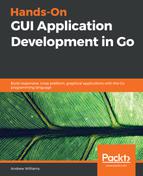Having established a connection to a remote server (or loaded the data from a local cache), the next challenge is likely to be parsing the response. Complicated string processing (which is what most HTTP-based APIs require due to their human readable design) is not a strength of many older programming languages that are common for native application development. Numerous libraries have been developed that will help with this task and are often shared freely (using an open source software license), but if the programming language does not have great string handling, it may still be a non-trivial task.
Extensible Markup Language (XML) and JavaScript Object Notation (JSON) are the main formats for transferring data over the internet, both reinforced by the great support they have in all languages aimed at web development (it should be no surprise that JSON usage is trivial in JavaScript applications). As the name implies, they are designed to transmit object-oriented, or structured, data, and there should be sufficient metadata within the content to allow objects to be recreated in the client software without complex un-marshaling code.
